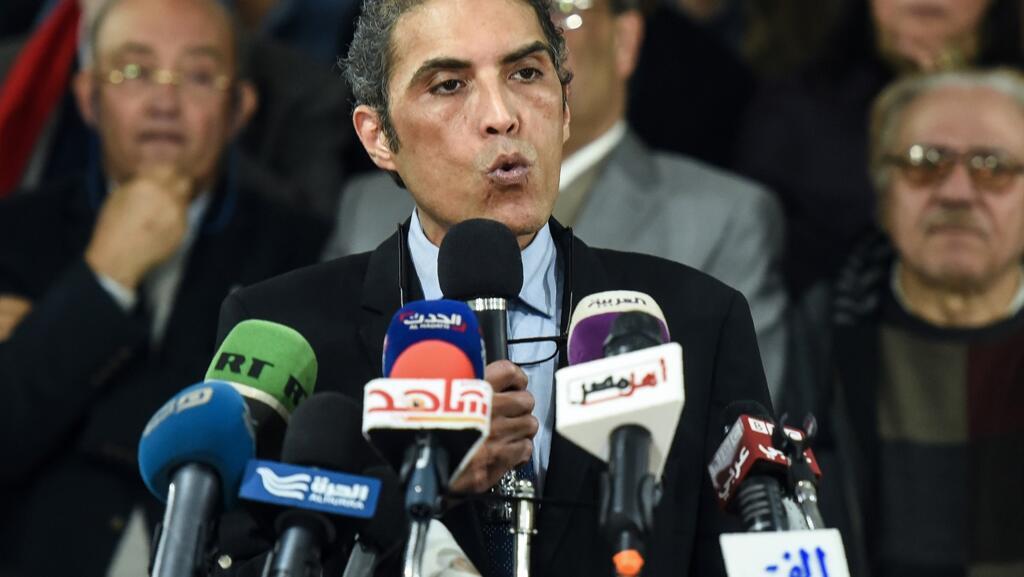More than 1,000 people were arrested in Egypt following rare protests against President Abdel Fattah al-Sisi on Friday (September 20th), according to local NGOs.
"Sissi releases!" Responding to the call of Mohamed Aly, a businessman exiled in Spain, several hundred people had defied the ban on protesting power in Cairo and other cities in the country.
The police intervened and dispersed the protesters using tear gas. Since then, they have arrested hundreds of demonstrators, journalists and political activists.
These arrests have been denounced by several international NGOs, such as Amnesty International, Human Rights Watch and The Committee to Project Journalists (CPJ). The Civil Democratic Movement, a coalition of the left, asked the authorities on Tuesday (September 25th) to release all those arrested and called for a "national dialogue".
Academics and political activists
According to the Egyptian Center for Freedoms and Rights, 1,003 people have been arrested since Friday, but the Center for Economic and Social Rights has spoken of 1,298 arrests.
Several university or militant figures, known for their positions critical of the government, are among the last arrested. Among them, Khaled Dawoud, former leader of the liberal opposition party Al-Dostour and member of the Movement Démocratique Civil was arrested and brought to justice on Wednesday, his lawyers said. A politician, but also a journalist, he was accused of spreading false news and joining a "terrorist" group and was detained for 15 days.
He will be tried in the same case as Mahienour El-Masry, a well-known lawyer and human rights activist, and Kamal Khalil, a trade union activist. Both were arrested last week.
Professor of political science at Cairo University and member of the campaign team of Sami Anan, presidential candidate against Abdel Fattah Al-Sissi in 2018 [arrested after having announced his candidacy, Ed], Hazem Hosni has, he too was arrested on Tuesday.
Hassan Nafaa, another professor at Cairo University, was also arrested Tuesday at his home. "I have no doubt that the absolute power of Sissi will lead to a crisis," he wrote on Twitter on Monday, saying: "It is in Egypt's interest that he leaves power today. but he will leave only under public pressure from the street. "
أرجو أن يفهم كلامي على وجهه الصحيح, فليس لدي شك في أن استمرار حكم السيسي المطلق سيقود إلى كارثة, وأن مصلحة مصر تتطلب رحيله اليوم قبل الغد, لكنه لن يرحل إلا بضغط شعبي من الشارع, وعلينا في الوقت نفسه اختيار أقل الطرق كلفة لضمان انتقال السلطة إلى أيد أمينة, وأن نتجنب سيناريو الفوضى.
Hassan Nafaa (@hassanafaa) September 24, 2019No official comment had been made Wednesday by the authorities following this wave of arrests.
In July 2013, Abdel Fattah Al-Sissi led the dismissal by the army of Islamist President Mohamed Morsi. Hundreds of Muslim Brotherhood supporters were killed in a sit-in dispersal in Cairo that same summer, according to international NGOs. Since then, protests against power have been banned and repression has spread to secular and leftist activists.
"True leader"
Encouraged by the mobilization of September 20 to which he had called, the exiled business man Mohamed Ali on Saturday launched a new call to take to the streets next Friday. In a series of videos posted on the Internet, he accused the president and the army of corruption. Allegations that Abdel Fattah Al-Sissi rejected.
Abroad, the Egyptian president has several supporters, countries like the United States seeing in him a bulwark against the extremists.
On the sidelines of the United Nations General Assembly in New York, where Abdel Fattah Al-Sissi is also present, US President Donald Trump on Monday called his Egyptian counterpart a "true leader".
Since last week, the police presence has been strengthened in Egypt and especially around Tahrir Square in Cairo, where the rallies that led in 2011 to the fall of President Hosni Mubarak were held.
In recent days, Egypt has also drawn criticism from human rights organizations after disruptions in applications such as Messenger and sites such as the BBC.
The General Information Organization (OGI), which handles foreign press accreditation in Egypt, warned journalists on Saturday that they should not "exaggerate" in their news coverage.
With AFP

